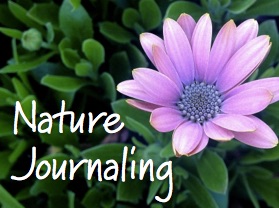
In all the writing literature I have crammed between DVDs on my book cases, the one literary element that gets short shrift is: Surprise. I can’t find it—no chapters devoted to expounding its importance. Exercises for plot, dialog, essay format, poetic structure, yes. Surprise? Well, occasionally it gets a passing mention. But almost always it’s tied to some other element (like, powerful verbs should be surprising, or a thesis statement is best constructed in a “surprise reversal” format). But that’s not what I mean. I mean, writing is absolutely dependent on subverting reader expectations over and over and over again, to be considered powerful.
Surprise means bursting through the door unannounced with cookies and milk, just for the reader, right when energy flags and minds wander. I’m not talking about big plot twists or even hiding information only to reveal it later. I also mean surprising the reader with a fresh metaphor; casting a commonly known term into a new grammatical role; picking unusual proper nouns for characters, street signs, shops; starting the story in the middle of the action; saving your best argument for last in an essay; hooking the reader’s attention at the top of the paper and saving the resolution for the conclusion (hook and return); littering the writing with alliteration, onomatopoeia, rhyme and consonance… and so on.
The best writing is as dependent on generously ladled portions of surprise throughout its lasagna layers of meaning, imagery, cool logic and vivid language as middle-aged readers are on good lighting and corrective lenses!
What’s more, it can be taught! Part of what makes your young writers’ quirky, poorly spelled and punctuated early attempts at written communication so enjoyable is the way their view of the world surprises your jaded, middle-aged one. You “crack up” when they surprise you.
It’s not hard to be surprising, once you know where to hide before you pop out!
Let’s take a look at this mysterious little element and introduce our kids to it. (Psst! They love surprises, so this may be your own subversive way to get them from the couch to the kitchen table, too!)
The “personal experience metaphor” trick
The hardest thing to do is to create fresh comparisons (metaphors, similes, analogies). Readers are sick of the “tried and true,” “old as the hills,” “dry as toast,” cliches that have served since the Spanish-American war! To wake up your readers, take an old cliche and buy it a new outfit. Draw from contemporary experiences that are alive to your kids.
Example: Her body twisted and flipped like Play-Doh in the hands of my baby brother.
Example: He focused his attention like a gamer trying to find the secret passage on level 6 of Mario.
Example: My Mom is older than an Atari play station.
Example: The early bird may catch the worm, but in my house, the early homeschooler catches up on math left unfinished from the day before.
The “grammatical transformation” trick
When I say, “What part of speech is ‘couch’?”; you think ‘noun’.” Right? How about this: “Don’t couch your words in flattery when you talk to me, mister!” Suddenly this ho-hum noun takes charge of the whole sentence (and the offending party!). If you flip the grammatical use of a few words, on a regular basis, you keep your reader vertical and awake! Not only that, habitual meanings can be subverted by using verbs and nouns in unusual pairings. “Dinosaurs marinate in the earth.” Do they? Well, yeah, kinda! It makes you pause and reconsider your internal vision.
Example: Drew lego-ed the sticks together into a kind of backyard fort.
Example: The birds pinwheeled through the autumn sky.
Example: The solution became a schmear of peanut-buttering one side of the argument while jellying the other, until the two competing options were slammed together into a single sticky whole.
The “collecting crazy names” trick
Get a moleskin notebook—the kind that fits in a pocket, or a purse. When you’re driving around, pay attention to signs. Jot down interesting names. Look at billboards, freeway exits, stores and hotels. Record terms that will serve as good choices for your writing. Names of people can be gathered from Greek myths, the Norse Gods, fiction you are reading, TV shows, cartoons, comic books, Shakespeare plays, a directory of your homeschooling community. It really doesn’t matter how you gather them, but pay attention and collect when you are not writing. Then when you need one, pull it out!
An expert in the field of surprising name choices is none other than J.K. Rowling. Whatever you think about her books, her use of creative names is unmatched. She tells her readers she’s been keeping a little notebook for more than a decade where she jots interesting names to be used at a later date. When she’d create a new character, she’d flip through her book looking for the right name.
Example: There’s a reason Rowling has “Hermoine” paired with Harry and Ron. Much more interesting than “Mary” might have been.
Example: Shakespeare has great names like “Hero,” “Benedick,” “Ophelia,” and “Iago.”
Example: The Greek myths include epic names: “Persephone,” “Demeter,” “Agamemnon,” “Xanthe” and “Kallisto.”
This hunt for a good name applies not only to people, but to stores, cities, street signs, organizations, tournaments—all fiction depends on a slew of proper nouns carefully selected.
Example: Diagon Alley (play on words: diagonally)
Example: Island of the Blue Dolphins (using a Native American name)
Example: Camp Kooskooskoos (Trumpet of the Swan: funny to say)
So join the game! Make “naming” a joy, not a chore.




















